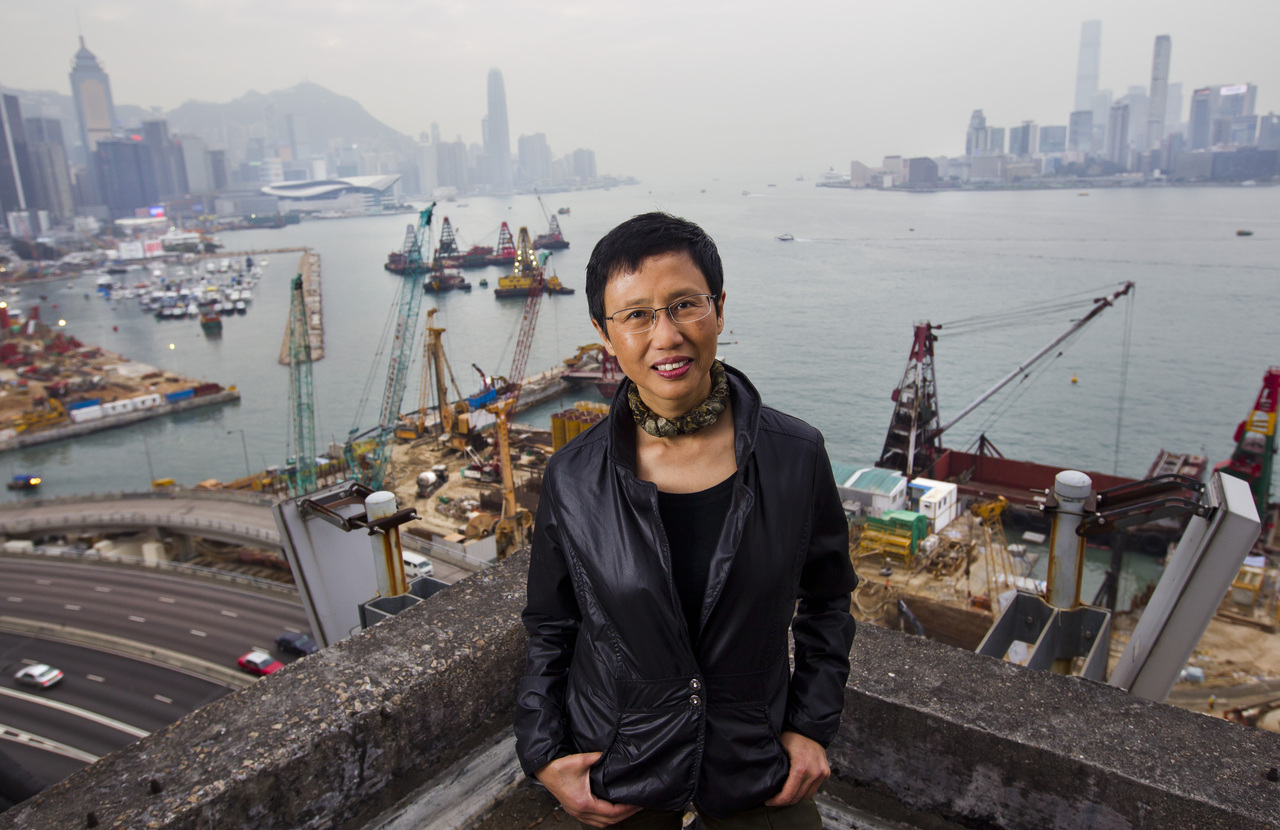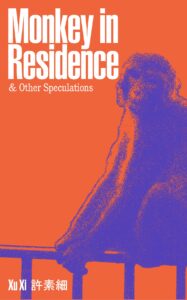 Interview by Lisa Haselton
Interview by Lisa Haselton
Welcome Xu. Please tell us about your current release.
This is a collection of 16 speculative stories and essays that invokes an existential disbelief at the state of things in contemporary life. I write about the inequities and abuse of power in sex, politics, race, history, culture and language through a darkly comic worldview. My terrain is transnational and the effect is, I hope, disturbing but also entertaining. The line between fiction and nonfiction is lyrically fuzzy.
What inspired you to write this book?
It wasn’t any one thing, because these pieces were written over several years, and many were previously published in journals. Assembling these pieces into a book or collection was however partly inspired by recent events in Hong Kong which have very rapidly changed the culture and life in my birth city. I was living between Hong Kong and New York for many years, mostly to look after my mother with Alzheimer’s, but left in 2018 after she died and now live only in New York. However, I still considered the city “home.” But the enactment of the new national security law in 2020 led to a sea change in the city that has been surreal. The Covid lockdown there also made it impossible to return easily because of the stringent quarantine requirements, adding a further layer of surrealism. Some of the more recent stories and essays in this book wrestle with that strange feeling of the looming loss of this place I knew as home. Looking back at some of my older uncollected work, I realized that these pieces also spoke to a similar existential disbelief that aligned with my feelings of the last few years. This is my 8th collection of shorter prose work, but the first to blur the line between fiction and nonfiction as much as this one does.
 What exciting story are you working on next?
What exciting story are you working on next?
Two stories, actually.
There’s this novel The Milton Man which I’ve been dragging around for over 30 years and I think it’s time I finished it. Few literature students read much Milton anymore nowadays, but he was an important poet and also an intriguingly conflicted figure. Suddenly, his work and life seem relevant to me today for my protagonist Frank Ong, a mixed-race, conflicted guy from Northern New York state, who would really rather just go fishing, but who finds himself leading a life he never imagined. He started out as a Milton scholar and professor of English (borrrring), but destiny had other ideas for him. I recently spent time in England doing some research for the novel and now will complete it — I’ve promised myself by early to mid next year at the latest. Once I make a deadline for myself, I tend to keep it. Also, when I’m willing to talk about a work-in-progress, it usually means I’ll get it done.
Meanwhile, I recently published what will be a chapter from a memoir-in-progress The Work Book which is all about my work life. What I want to write about is the nature of working for a living, something most humans (who are not part of that 2%) have to do. I’ve had a pretty varied work life that took me around the world, a work life that helped me understand how the world operates and what money means. As I’m very close to retirement from any work other than my writing, it seems a good time to consider – borrowing from Milton – “how my light (has been) spent.”
When did you first consider yourself a writer?
I published my first piece when I was 11, but I started writing a few years before that. I don’t think I considered myself a writer then but did know that writing was something I just did and would likely always do (which has been the case). But when I first realized that writing was serious for me was sometime in my mid 20’s. I had left my job, given myself a “gap year” to write and applied for a MFA, which I did end up doing at the University of Massachusetts at Amherst. At that point I knew I was a writer, and that writing was my life’s work, regardless. Strangely, when you actually take what you do seriously, then you make a real career out of it, which is what I did.
Do you write full-time? If so, what’s your work day like? If not, what do you do other than write and how do you find time to write?
I have written full-time at various points in my life, but I’ve also had two careers — in business and academia — that comprised part-time or full-time jobs. So my writing work day changes depending what job I have. The ideal writing day always begins early in the morning and I write till I stop, usually to go for a run or swim, or to face the day, or preferably because it’s time for cocktails and dinner. But finding time to write is something I’ve simply always done. For instance, whenever I’ve had a heavy work and international travel schedule, I learned to write on board long plane trips and at different hours of the day or night, whenever I could find time. If writing matters, you just make the time. I’ve always admired mothers with children who made time to write, especially women who also have to work outside the home, because motherhood strikes me as the most time-consuming job in the world. I never wanted children, and part of the reason for that (besides simply knowing from a young age that I had no desire for children) was that I did want to write. I couldn’t see how to be a mother and write without going crazy. Too many women writers with children didn’t fare terribly well, Virginia Woolf and Sylvia Plath to name two. Despite their literary success, I never wanted to end up like either of them.
What would you say is your interesting writing quirk?
To write, I really need to get the housework done. Whether it’s doing dishes, ironing clothes or cleaning house or my desktop, I cannot leave a mess and try to write. It just doesn’t work. So getting up in the middle of the night to write works for me because at that hour, the housework is usually done.
As a child, what did you want to be when you grew up?
Astronaut, missionary doctor, nun, ballerina, concert pianist, but I flunked math, hated biology, gave up religion, could not dance terribly well, and knew, when I heard a classmate play piano for Artur Rubinstein in a master class that she was a real prodigy while all I was, was someone who could just read music and play a little. So writing was the only thing left that I could do, although I still play piano today, but purely for my own pleasure and never to perform.
Anything additional you want to share with the readers?
I hope you’ll read my book!
And also, I invite you to check out my e-book sampler. It includes some of my earlier work, as well the entire essay, “When Your City Vanishes.” https://signal8press.com/when-your-city-vanishes/.
About the interviewer: Lisa Haselton is an editor, author interviewer, and book reviewer — for all fiction genres, non-fiction, technical, & business. This interview first appeared on her blog here: https://lisahaselton.com/2022/08/31/interview-with-writer-xu-xi/